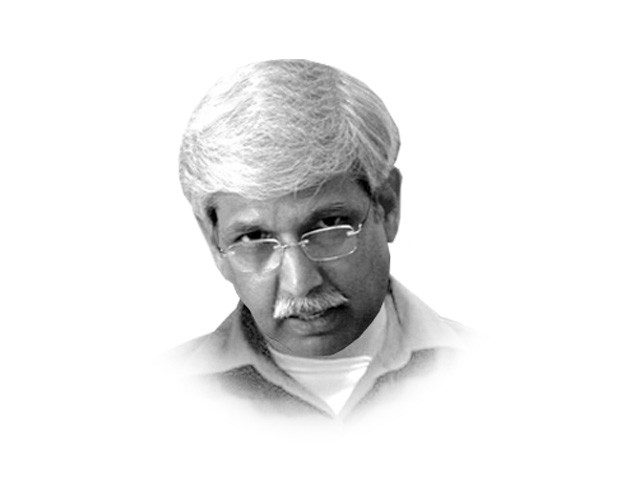Thank you, Raymond — I
People have always held an opinion on America but never an outpouring and an outrage.

Three recent events in Pakistan-US relations signify a varying trajectory from the popular perception on the nature of these relations and their unidirectional emphasis. Somewhere in October 2010, after America’s persistent call to ‘do more’, Pakistani interlocutors at the strategic dialogue with Washington presented President Obama with a Pakistani version of what might help both countries reach a consensual end-state in Afghanistan. It also clearly underlined why Pakistanis at large doubt American intent and level of commitment and sensitivity to Pakistani interests. Joe Biden’s last visit to Pakistan was intended to alleviate some of those perceptions from that level. In the intervening period, the incessant calls for Pakistan to act in North Waziristan subsided; they remain on the back burner with an odd statement, supportive of Pakistan’s choice of the timeline. Pakistan countered American pressure on the basis of reason and came out well.
This was followed by an armed incursion by US/Nato forces of Pakistan’s border and deliberate attacks on a Pakistani post. Pakistan retaliated by suspending supplies and closing the more frequently used route to Afghanistan. Infrequent torching of American supplies continues, though not of any state collusion. The US, highly dependent on Pakistan’s logistic facilitation, regretted the incident, promised retribution where neglect was determined, and assured no recurrence. An odd incident has repeated, but never as grave, nor as deliberate. But the red lines of this cooperative relation were reinforced in no uncertain way.
The above two occasions were more state responses than popular sentiment. People have always held an opinion on America, swayed by the sentiment of opportune anti-Americanism, reinforced to a considerable measure by the adverse fallout of the ongoing war against terror and the inequities of this relationship. But never an outpouring and an outrage. Thanks to Raymond Davis, or whatever his real name is, the occasion has brought forth an opportunity for precisely this to happen.
Published in The Express Tribune, February 25th, 2011.


















COMMENTS
Comments are moderated and generally will be posted if they are on-topic and not abusive.
For more information, please see our Comments FAQ